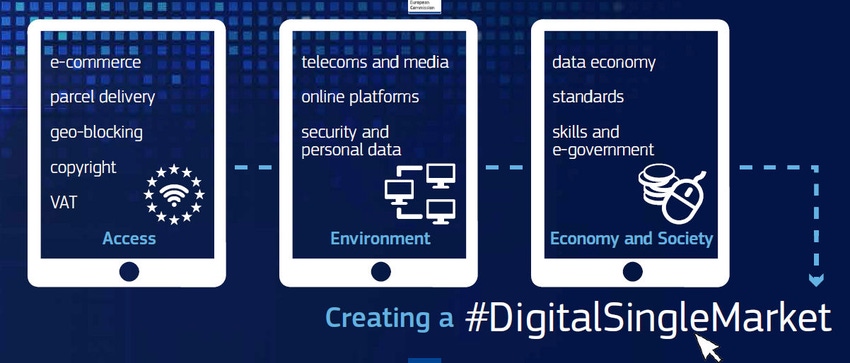Europe announces glacial progress on the Digital Single Market
Less than a year after unveiling its Digital Single Market initiative the European Commission has served up its first set of concrete measures designed to boost investment in digital stuff across the region.
April 19, 2016

Less than a year after unveiling its Digital Single Market initiative the European Commission has served up its first set of concrete measures designed to boost investment in digital stuff across the region.
The EC reckons certain sectors, including construction, agriculture and textiles, as well as SMEs are showing insufficient zeal toward their digital transformations. While individual countries have launched their own initiatives to address this, the EC unsurprisingly feels you can’t beat a pan-European approach.
“The industrial revolution of our time is digital,” said DSM VP Andrus Ansip. “We need the right scale for technologies such as cloud computing, data-driven science and the internet of things to reach their full potential. As companies aim to scale up across the single market, public e-services should also meet today’s needs: be digital, open and cross-border by design. The EU is the right scale for the digital times.”
“Europe has a very competitive industrial base and is a global leader in important sectors,” said Günther Oettinger, Commissioner for the Digital Economy and Society. “But Europe will only be able to maintain its leading role if the digitisation of its industry is successful and reached fast. Our proposals aim to ensure that this happens. It requires a joint effort across Europe to attract the investments we need for growth in the digital economy.”
In the name of pushing things along, the EC will:
Help coordinate national and regional initiatives on digitising industry
Focus investments in EU’s public-private partnerships
Invest €500 million in a pan-EU network of digital innovation hubs
Set up large-scale pilot projects to strengthen internet of things, advanced manufacturing and technologies
Adopt future-proof legislation around ownership and flow of IoT data
Present an EU skills agenda for digital training
Commence a new cloud initiative
Try to help with standard setting in 5G, cloud, IoT, data technologies and cybersecurity
Co-finance R&D for standards
Launch 20 digital public service measures by the end of 2017
Present 16 more initiatives by the end of this year
Big companies are generally keen to be seen to approve of the EC’s efforts, however glacial their progress, but Vodafone was one that felt compelled to flag up an issue. “The strategy makes an assumption that fibre-optic networks delivering gigabit speeds to businesses and households will be ubiquitous across the EU,” said a Vodafone public policy blog.
“Yet the connectivity required to attain digital industrial leadership is lacking in many Member States which remain reliant on outdated copper telephone networks rather than gigabit fibre. This is particularly the case in Germany – Europe’s largest economy – where the Commission is being asked to endorse plans for short-term incremental upgrades to legacy copper networks which would leave German businesses and consumers trapped in the slow lane of Europe.
“Only with gigabit fibre to every workplace will Europe be able to compete with other advanced economies that have invested in the modern digital infrastructure their companies and consumers need. We urge the Commission to focus on building the fibre foundations of the digital economy as part of its laudable vision for the future of European industry and a true Gigabit Society.”
Vodafone has operations in Germany and presumably wouldn’t mind a bit of Euro subsidy to help with its fixed line efforts. As is often the case the latest EC proclamation is long on ambition and short on specifics. The mega-bureaucracy also seems to operate at a significantly slower pace to private enterprise so the likes of Vodafone are unlikely to be holding their breath for concrete action.
About the Author(s)
You May Also Like








.png?width=300&auto=webp&quality=80&disable=upscale)


_1.jpg?width=300&auto=webp&quality=80&disable=upscale)


.png?width=800&auto=webp&quality=80&disable=upscale)